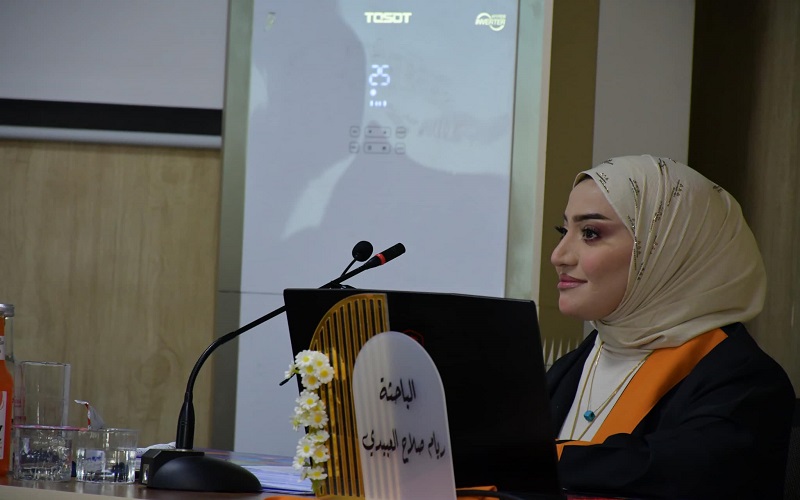With the help of God Almighty, on Thursday 12/26/2024, the master's thesis entitled "Performance Evaluation of Kirkuk Irrigation Project under the Impact of Water Scarcity" by the researcher Riyam Salah Yassin was discussed in the discussion hall of the College of Engineering, University of Kirkuk.
The discussion committee consisted of the following lecturers:
1. Prof. Dr. Raad Hobi Arzouqi - Professor - College of Engineering - Tikrit University (Chairman).
2. Prof. Dr. Jalnak Akram Omar - Professor - College of Engineering - University of Kirkuk (Member).
3. Prof. Dr. Taymour Abdul Majeed Ibrahim - Professor - College of Engineering - University of Kirkuk (Member).
4. Asst. Dr. Mariwan Redha Faris - Assistant Professor - College of Engineering - University of Kirkuk (Member and Supervisor).
The thesis dealt with a study of the importance of the Kirkuk Irrigation Project as the main source of water for Kirkuk Governorate, and the impact of the water scarcity that Iraq suffers from on this project. The study attributed the causes of water scarcity to the water policy changes adopted by neighboring countries, the mismanagement of water resources internally, and the increasing demand for water due to population growth.
The thesis focused on the Kirkuk Irrigation Project and its irrigation network, including the main canals and the feeder canal, and maps were prepared using the Geographic Information System (GIS) to document the project. Drought and climate data were also analyzed, showing that the average annual temperature in the region is about 22 degrees Celsius, with winter rainfall ranging between 226.4 mm and 237.4 mm.
Drainage data for the project was collected over the past decades, and the results showed that water discharges in 1996 amounted to about 104.5 cubic meters/second, but decreased to 30 cubic meters/second by 2023, which led to the exclusion of agricultural plans based on the project's water. In 2023, the available water was limited to necessary daily use, while agriculture depended entirely on well water, with the total number of wells in the governorate reaching 13,189 wells.
The performance of the Kirkuk Irrigation Project was evaluated through a questionnaire that included three main axes: project management and operation (26 questions), maintenance (9 questions), and farmers (12 questions). The data was analyzed using the SPSS statistical program. In addition, a SWOT analysis was conducted to identify the strengths, weaknesses, opportunities, and threats related to the project.
The study showed that the project was significantly affected by drought and water scarcity, which requires taking decisive measures to secure water for the project, and focusing on growing crops that consume small amounts of water. The discussion concluded by praising the student’s efforts and practical recommendations that could contribute to improving water resource management in Iraq.

 College of Engineering - University of Kirkuk
College of Engineering - University of Kirkuk  Arabic
Arabic  English
English 